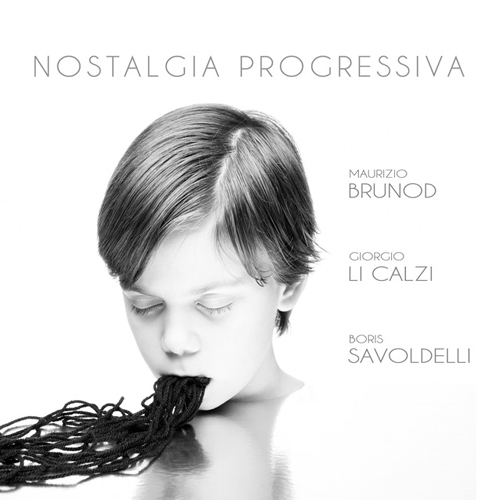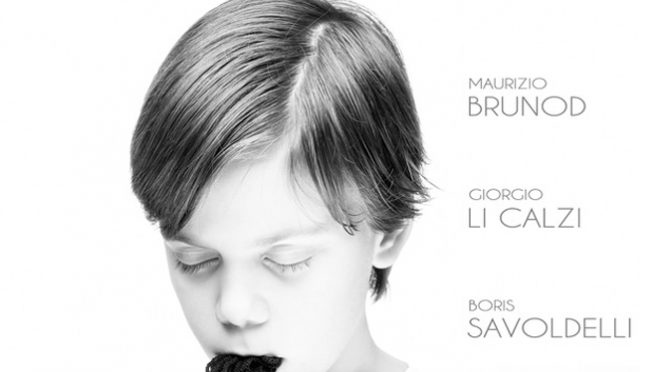Maurizio Brunod, Giorgio Li Calzi, Boris Savoldelli – Nostalgia Progressiva (distributed by MoonJune Records, 2019)
Three forward-thinking Italian musicians celebrate the progressive music of the late 1960s and the early 1970s on Nostalgia Progressiva.

The album opens with “Formentera Lady,” a song that appeared on King Crimson’s Islands in 1971. The song is reconstructed with glitchy electronics, jazz trumpet, ambient electronics, soaring electric guitar and soft vocals.
Trsack 2 is the lovely “Mate Kudasai” from King Crimson’s album Discipline (1981), metamorphosed into a delightful bluesy version.
Although not a progressive music song, the trio reconstructs “Tomorrow Never Knows” by The Beatles (Revolver, 1966), transforming it successfully with mesmerizing loops, processed vocals, and guitars.
“Shipbuilding” is a song with lyrics by Elvis Costello that was written during the Malvines/Falklands War of 1982. In its new incarnation, it becomes a laid back song with vocals, guitar and spellbinding, gorgeous electronic ambience.
Next is Radio Activity, a song by German electronic music and techno pioneers Kraftwerk, included inn the album Radio-Activity (1975). Here, it reappears as a dub rock song.
The memorable song “I Talk to the Wind” from King Crimson’s In the Court of the Crimson King (1969) begins as an acoustic folk song that evolves into a trip hop wonder, featuring electronically-manipulated trumpet, similar to Jon Hassell’s work.
Another progressive rock classic, “Starless,” by King Crimson (Red album, 1974) in transformed into a futuristic piece with acoustic guitar, lead melody on trumpet and looped vocals.
“Taranaki” is the most jazz-oriented piece. This re-reading contains electronic beats, wordless vocals and soft trumpet.
Yet another gem from King Crimson appears on this recording, “Moonchild” (In the Court of the Crimson King, 1969). This version features exquisite acoustic guitar, vocals and trumpet.
The last track is “Gioco di bimba,” originally released by the fabulous Italian progressive rock group Le Orme (Uomo di pezza, 1972). It reappears with electronic beats and ambiance plus vocals.
Lineup: Maurizio Brunod on electric and acoustic guitar, samples; Giorgio Li Calzi on trumpet, fluegelhorn, keyboards, electronics; and Boris Savoldelli on vocals, electronics, and vocal synth 3D prototype.

